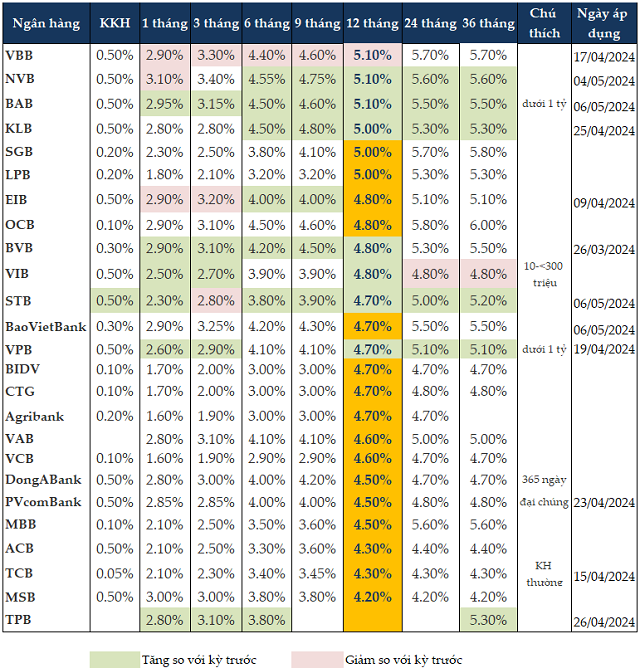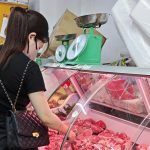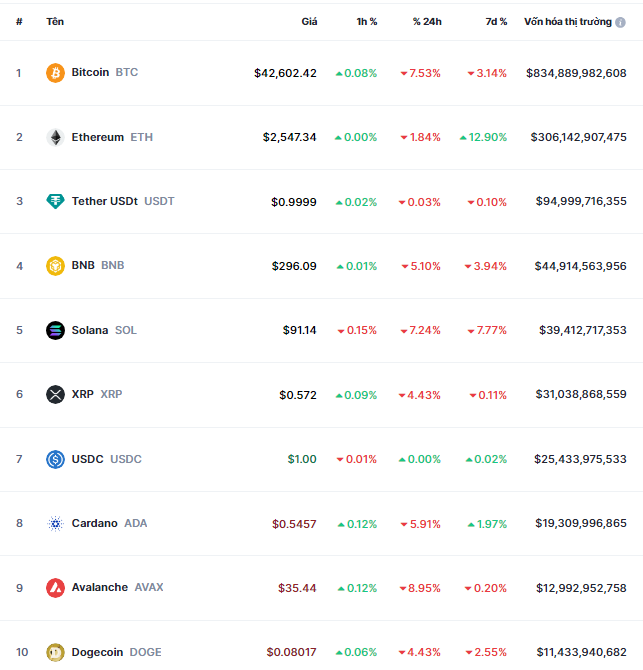April 26, a conference was held to evaluate rice export results from 2023 to the first quarter of 2024.
Mr. Nguyen Anh Son, Director of the General Department of Import and Export under the Ministry of Industry and Trade – said that in 2023, Vietnam exported over 8.1 million tons of rice with a value of 4.67 billion USD, an increase of over 14% in volume and over 35% in value compared to the same period in 2022. The average export price reached $575 per ton, an increase of over 18% compared to the average price in 2022.
In the first quarter of this year, rice exports reached nearly 2.2 million tons, with a value of over 1.4 billion USD, an average price of nearly 654 USD/ton, an increase of 17.6% in volume, 45.5% in value, and 23.6% in price compared to the first quarter of 2023.
Currently, the country is in the late stages of the Winter-Spring crop, the largest crop in the provinces of the Mekong River Delta ( MD), with abundant output, serving the rice export well. In addition, the import demand from markets around the world is still forecast to be higher than the global supply, so the price of exported rice is still expected to increase.
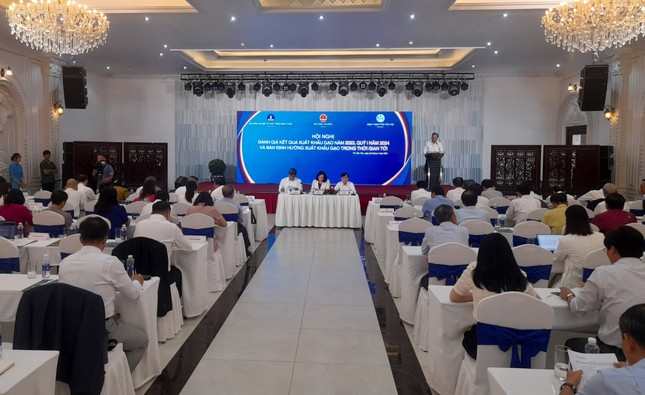
Conference scene.
Besides the results achieved, Vietnam’s rice export activities still face many challenges. The General Department of Import and Export proposed that the Vietnam Food Association (VFA) and rice exporters ensure the purchase of rice for farmers according to the direction of the Prime Minister in Directive No. 10/CT-TTg dated March 2, 2024.
The VFA and the traders continued to strictly comply with the provisions of the law in the consumption of rice domestically and internationally, especially in ensuring sufficient documents and full traceability records in the process from procurement to processing, consumption, and export, ensuring no commercial fraud, preserving the brand image, and the reputation of Vietnamese rice…
According to Mr. Nguyen Ngoc Nam, Chairman of VFA, 2023 recorded the highest rice export results ever, with domestic and export rice prices always maintained at a high level. However, the export efficiency was quite limited because most traders faced difficulties in accessing credit capital, especially working capital, affecting the company’s (DN) procurement progress.
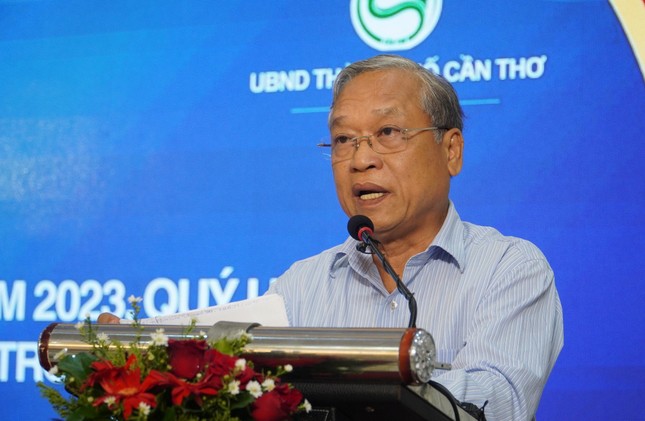
Mr. Nguyen Ngoc Nam, Chairman of the Vietnam Food Association, spoke at the conference.
Vietnam’s rice exports in the first quarter of this year reached nearly 2.2 million tons, the highest volume of rice exports in the first quarter ever. The increase in global market demand has pushed up Vietnam’s rice export price to an average of over 529 USD/ton, up nearly 9% (nearly 43 USD/ton) compared to the same period. Notably, the results for March alone set a new record for Vietnam’s export capacity in one month, reaching over 1.1 million tons.
However, according to Mr. Nam, the current difficulty is weather, economic and political risks, food import-export policies, and cautious sentiment in the domestic and international markets, which has continued to drag on, forcing traders, satellite warehouses, and businesses to trade cautiously when only supplying/signing short-term orders. While credit is still the issue that the rice exporting business community in the Mekong River Delta is most concerned about.
Sharing is needed
Regarding the issue of brand building , according to the businesses, it is a situation where everyone acts for themselves, with little sharing, the linkage is weak, and easily broken, and the story of rice being bought and sold in the fields is easily pressured, which is understandable. Mr. Nguyen Viet Anh, General Director of Phuong Dong Food Company Limited, said that many such conferences were held, but they lacked about 10 of the country’s large export enterprises.

Mr. Nguyen Viet Anh, General Director of Phuong Dong Food Co., Ltd.
“Those businesses are very secretive, they travel to other countries and work quietly and very discreetly, that is a shortcoming of the food industry for a long time. Out of hundreds of enterprises licensed to export, only about 50 enterprises participate deeply in the market share because the market is also very competitive. Therefore, we really need these businesses to share their opinions to contribute to the sustainable development of the industry,” said Mr. Anh.
Mr. Nguyen Ngoc Nam, Chairman of VFA, also recommended that the State Bank organize bilateral dialogue conferences with businesses directly involved in rice export business so that information could be shared and received correctly with the focus and in line with the reality of the rice industry in Vietnam.
Mr. Nam also proposed to reassess the soil characteristics of each cultivated area in the Mekong River Delta as well as the role of each link in the rice supply chain throughout the region, avoiding local assessments by locality.
“We need to look again and accept the role of the rice trading component and have a management mechanism for this force. At the same time, strictly manage the input, especially pesticides, to ensure the quality of rice…” – the VFA Chairman recommended.
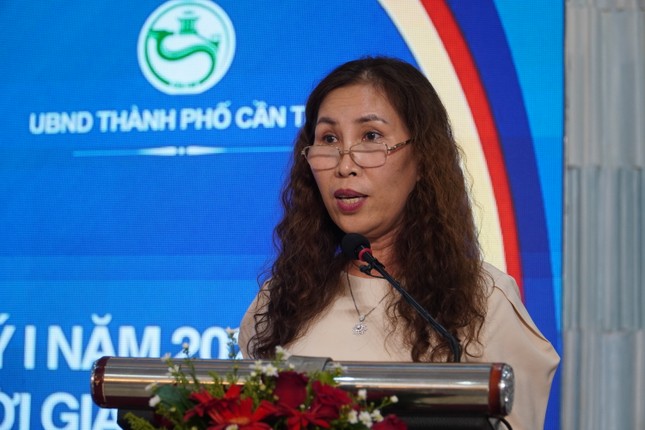
Ms. Huynh Thi Bich Huyen, Chairwoman of the Board of Directors of Ngoc Quang Phat Import Export Joint Stock Company.
Ms. Huynh Thi Bich Huyen, Chairwoman of the Board of Directors of Ngoc Quang Phat Import Export Joint Stock Company, said that in order to qualify for rice export business, the enterprise needs to invest in a lot of machinery, equipment, high technology according to a closed chain, while consuming rice for farmers according to the crop season in large quantities. With the credit limit like the previous two years, the enterprise is stable, but now with the extremely high costs, the rice price has recently also increased too much, so the business faces difficulties when the capital gradually decreases.
“To ensure balanced procurement for farmers, stabilize inventory costs before signing export contracts, contribute to national food security and businesses, we need to expand bank limits, and reduce interest rates so that businesses can circulate goods according to the crop season, flexible in disbursement, avoid dumping to get contracts, having contracts before getting disbursement, this is very dangerous for the business,” Ms. Huyen recommended.

























